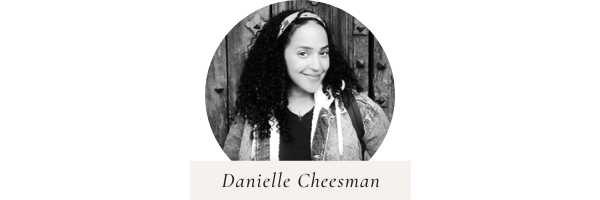
Why I Stopped Trying To Be A “Morning Person”
Rise and Shine?
Before COVID-19, our days were defined by places to go and people to see. Without either, we’re experiencing an almost-inverse agenda where schedules feel obsolete and free-time abundant. Still, even with all the external encouragement to maximize our loosely shaped days with self-discovery and self-care, what I haven’t opted to do is become an ultra-early riser. In fact, sticking to my usual routine amidst the stress has brought normalcy to the unnatural.
“I’d developed an early proclivity for wandering around the house in the dark long after I was assumed to be asleep.”
When I was a toddler, my parents “lost” me (at least) twice, and through no fault of their own. I was a two-year-old who, according to them, had learned how to leap out of bed—they gave up on the crib—and land on my feet like I was a gymnast. I’d developed an early proclivity for wandering around the house in the dark long after I was assumed to be asleep.
Unbothered by the fact that I couldn’t reach any of the light switches, I’d amble around our home—for what exactly, is still unknown—and once satisfied with my aimless search, would find a new place to rest my still-developing head. My parents woke in the mornings to discover their baby, well, gone. I was in our living room behind the bar; yes, a heavy, free-standing hunk of wood that held the house’s liquor. Or I was found under my bed, in the corner, covered with dust and needing to be dragged out by my legs.
My disposition for the dark has lasted well into adulthood. Even now, when I ask my boyfriend to stay up with me for just a little bit longer, he laughs with a wobbly and incredulous shake of his head.
But my innate affinity has begun to feel more like a source of shame than a badge of honor. As the pursuit and performance of self-care permeates our news cycles and social media feeds, I see friends and public figures alike hitting the gym before work. Time-stamped still-shots of the sunrise populate Instagram Stories. Multi-step morning routines are shared like checklists.
“My disposition for the dark has lasted well into adulthood. But it’s begun to feel more like a source of shame than a badge of honor.”
Circulating articles further substantiate these habits, detailing how CEO-level success is often contingent upon waking with (or before) the sun. Of Mark Wahlberg’s daily 2:30 a.m. routine, Business Insider wrote as if an applause: “It has gotten results for Wahlberg, who was the highest-paid actor of 2017.”
As much as I try to mimic these methods, dressing in the dark to go to the gym or sitting at my desk to make a list of everything I’m grateful for, I feel like that same toddler. Like I’m being forced to fight what comes naturally. I end up feeling like my early hours are more frantic, not less. And I feel like a failure because of it.
“Comparing ourselves is pretty much an instant ticket to self-loathing and regret.”
“Having very successful people brag about their magnificent discipline can be extremely discouraging to people who are at the beginning of their own journeys,” says career coach Carlota Zimmerman, J.D. “It can make someone think, ‘Well, I like to sleep in…am I lazy?’ Comparing ourselves is pretty much an instant ticket to self-loathing and regret. Whatever it is you’re trying to do, give yourself the permission to do it your own way, on your own terms.”
Find what works for you (no, really)
Mindset coach Antoinette Beauchamp calls this approach Intuitive Scheduling. The method allows you to schedule your days according to tasks that bring you the most ease and joy.
“To put it simply, it’s all about creating a calendar that works for you, not against you,” she says. “And avoiding a ‘should’ mindset is crucial in finding [those] routines. Intuitive Scheduling goes hand-in-hand with understanding what your needs are, personally and professionally. If you’re tired, make space for rest. If you know you need to eat five times a day, make sure you always have snacks handy. If you know you get burnt out from meetings, schedule them further apart from each other.”
“Instead of trying to fulfill a tight regimen…before I leave for the office, I wake naturally, opt for just one practice, and luxuriate in the rest later.”
What works for me is completing my day’s must-dos first—work, errands, housekeeping—so that my evenings are left free for what I want to do, which is lean into my self-care without a schedule. Instead of trying to fulfill a tight regimen of minute-to-minute meditating, journaling, exercising, and more before I leave for the office, I wake naturally, opt for just one practice, and luxuriate in the rest later.
Doing this has allowed me to be more mindful in the moments I need it most. Instead of my mind involuntarily wandering during a morning Savasana, I’m unburdened when doing the same pose in the evening because my tasks are already done. Writing down what I’m grateful for at night means I’m keeping an eye out for those precious moments during the day (and becoming more present-minded in the process).
As a gentle reminder, Beauchamp says, “[Your schedule] may be different every day. While routine can help you set up consistency, flexibility allows you to stay in alignment with your nature. By giving yourself permission to intuitively shift and go with the flow, you give yourself more space to find motivation, gain confidence, and discover your own version of productivity.”
“By giving yourself permission to intuitively shift and go with the flow, you give yourself more space to discover your own version of productivity.”
Don’t fight your circadian rhythm
I was born at 10:58 p.m. On Halloween, no less. To be honest, I’m surprised I didn’t come out in a witch’s hat eager to salvage the holiday’s last hour. For years, I’ve claimed this as the reason for my night owl-ness. And while I’ve only found one study to support my theory, circadian rhythm has been proven to influence whether or not you are a “morning” or “night” person.
Our bodies’ internal clocks are affected by factors like genetics, gender, sunlight, and age, and they can regulate functions, including body temperature and the levels of hormones in our blood. Regardless of the variables, our individual circadian rhythm determines when we are most alert and when we are most sleepy. Living in misalignment with our natural body clock can negatively impact our health.
“As with genetics where people are built differently, this applies to sleep patterns too,” says Dr. Giuseppe Aragona, a general practitioner and medical advisor. “Circadian rhythms play a part, but when all is told, if a night owl is constantly fighting against their body’s natural instinct by waking up early each morning, this will have a cumulative detrimental effect on their health, awareness, mental capacity and, of course, their ability to succeed in their job.”
“Embracing my tendencies instead of combating them feels like I’m detouring out of a race I didn’t want to be a part of.”
Embracing my tendencies instead of combating them feels like I’m detouring out of a race I didn’t want to be a part of. Projects and pleasures are balanced in a personalized way, and I am subject to the Midday Slump a lot less because of it. Wake time aside, abandoning a one-size-fits-all approach can be freeing for all of us.
“It’s not survival of the fittest,” says Aragona. “It’s being in tune and listening to your body to eke out the best performance.”
Do you consider yourself a morning or a night person, and why? ☀️🌙 Share in the comments below!
RELATED READING
Danielle Cheesman was born and raised in New Jersey, where she lived until moving to Philadelphia to study journalism at Temple University. She has spent her years writing and developing editorial visions for music, art, and lifestyle brands. Now residing in Los Angeles, you can usually find her taking pictures, making playlists, or cuddling her pup. Say hi on Instagram!
